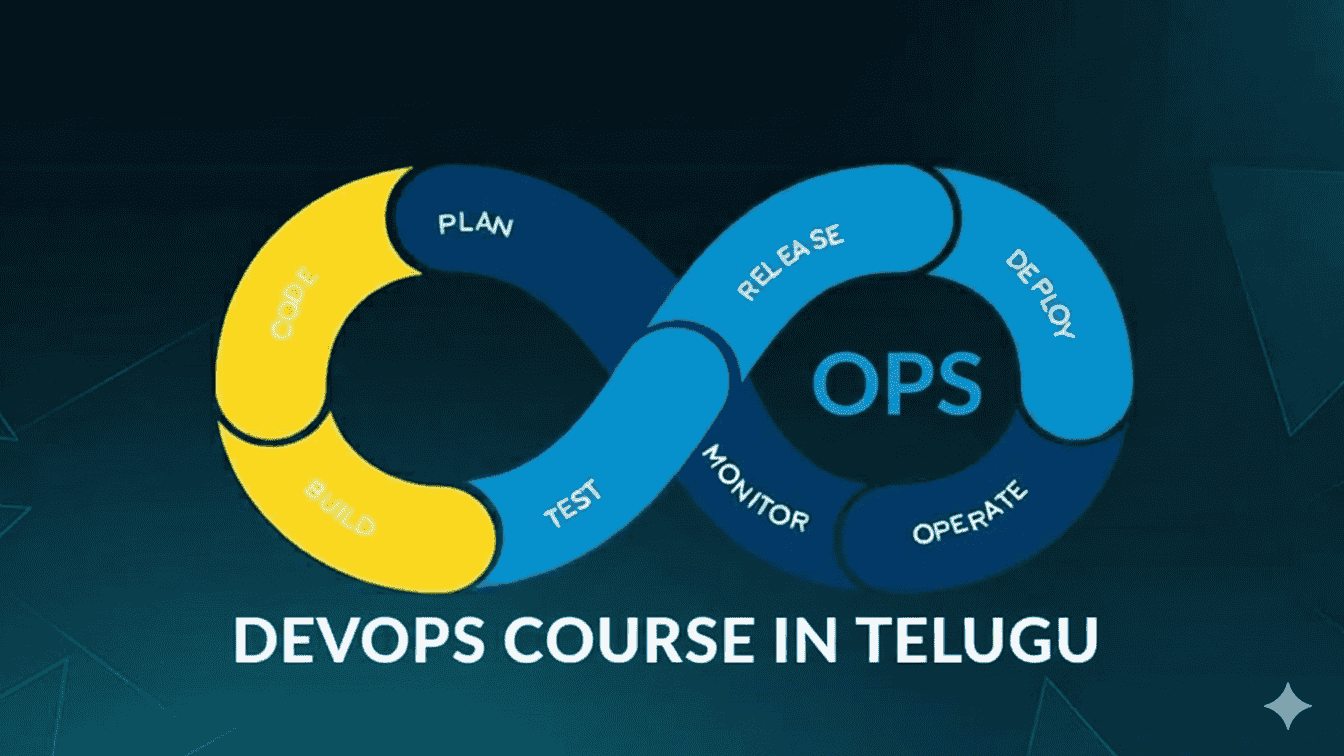Introduction
The world of software development is changing faster than ever. Businesses want to deliver applications quickly, efficiently, and securely — and that’s where DevOps plays a crucial role. DevOps bridges the gap between software development and IT operations, allowing teams to collaborate, automate, and deploy applications seamlessly. For Telugu-speaking learners who dream of building a career in IT but struggle with English-based courses, a DevOps Course in Telugu is a perfect solution. It simplifies complex DevOps concepts using your native language, helping you understand, practice, and apply them confidently in real-world scenarios.
What is DevOps?
DevOps is a set of practices, tools, and cultural philosophies that unite development and operations teams to improve software delivery. The goal of DevOps is to reduce manual work, automate processes, and achieve continuous integration and continuous delivery (CI/CD). In traditional IT environments, developers write code and hand it over to operations teams, often leading to delays and misunderstandings. DevOps removes these barriers by automating workflows, enabling faster software releases, and ensuring better collaboration across the lifecycle.
Why Learn DevOps in Telugu? Learning technical skills in English can be challenging for many Telugu-speaking students and professionals. A DevOps Course in Telugu helps overcome this barrier by explaining complex topics in simple, understandable Telugu.
Here’s why it’s a great choice:
Better Understanding: You learn advanced tools and workflows without struggling with unfamiliar terms. Comfortable Learning: Studying in your native language builds confidence and improves retention. Local Industry Relevance:
Telugu-based learners can prepare for both Indian and global DevOps job roles. Affordable and Accessible: Many Telugu courses offer affordable training with local mentors and practical demos. Whether you’re from a non-IT background or just starting your career, learning DevOps in Telugu makes it easier to grasp technical concepts like CI/CD pipelines, cloud integration, and automation. Key Concepts You’ll Learn in a DevOps Course A professional DevOps Course in Telugu typically includes both theory and hands-on training.
Here’s an overview of the main modules you’ll learn:
1. DevOps Fundamentals What is DevOps and how it differs from traditional IT? DevOps lifecycle and principles Collaboration and automation culture
2. Version Control (Git & GitHub) Managing code efficiently Working with branches and repositories Team collaboration and workflow management
3. Continuous Integration & Continuous Deployment (CI/CD) Automating builds and deployments using Jenkins Integrating testing and deployment workflows Setting up CI/CD pipelines for faster delivery
4. Containerization (Docker & Kubernetes) Understanding Docker images and containers Deploying applications with Kubernetes clusters Scaling and managing microservices
5. Infrastructure as Code (Ansible & Terraform) automating infrastructure setup, managing servers and configurations, deploying resources on AWS, Azure, or GCP
6. Cloud and Monitoring Tools Working with AWS or Azure using Prometheus and Grafana for performance monitoring, implementing alerting and logging systems
Conclusion
The IT industry is evolving every day, and automation is at its core. DevOps is not just a skill — it’s a culture that every modern organization embraces. By taking a DevOps Course in Telugu, you’re unlocking an opportunity to learn in your own language, gain practical knowledge, and build a strong foundation in automation and cloud technologies. Whether your goal is to land a high-paying job or grow in your existing IT role, DevOps is the right path to choose.








